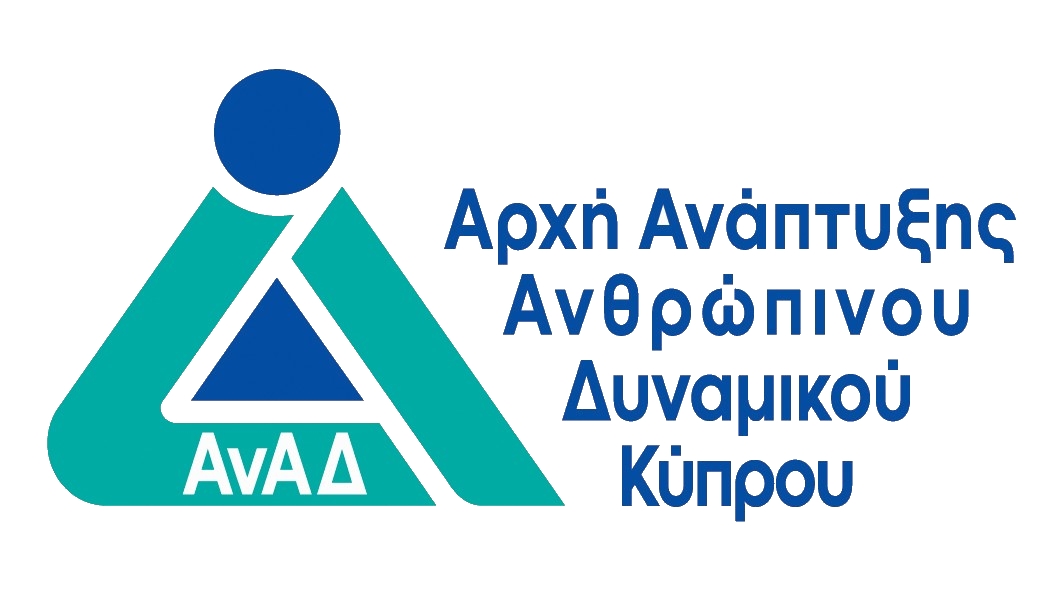
Drafting Commercial Contracts
- Οργάνωση/ Διοίκηση/ Ηγεσία - Νομοθεσία, Νομική & Δικηγόροι

ΠΕΡΙΓΡΑΦΗ
Business success largely depends on the successful closing and completion of chosen commercial transactions. With the rapid development of technology and the inevitable need for digital transformation, the successful closing and completion of chosen technology agreements is directly connected to business success. Most often such commercial transactions are pre-agreed between the parties and represent valid commercial contracts.
Commercial contracts can be oral, written, partly written and partly oral or implied based on the conduct of the parties. However, proving the terms of an oral contract is a matter of evidence and can be very difficult when there is nothing in writing to confirm the precise rights and obligations which have been agreed to between the parties. A written contract serves as its own proof that an agreement was made.
The secret of professional contract drafting is to include the necessary substantive provisions that will be drafted by design and not by accident. Strong writing, organizational skills and attention to detail are required by the drafters to translate the business deal into a legal document that will protect the parties’ intentions and interests. Well drafted and effective commercial contracts avoid hidden risks and liabilities and usually lead to successful transaction outcomes. On the other hand, poorly drafted commercial contracts increase the likelihood of claims and disputes often leading to loss of business opportunities and revenue. Therefore, one needs to have the knowhow and make the effort in getting the contract right in the first place.
This intensive course is designed with high-quality teaching techniques following an innovative learning methodology to enable participants to take a detailed look at every element of contract drafting. The course gives participants the required theoretical and practical knowledge and the basic legal and commercial information to improve their drafting skills and enable them to manage contractual pitfalls and draft clear, transparent and unambiguous commercial and technology contracts that conform on a legal and commercial level.
The training course focuses on the structure, terms and conditions of a basic commercial contract and pays particular attention to the importance of contract interpretation as well as providing an overview of the allocation of risk between the parties. Although the course focuses primarily on the general skills and techniques of drafting contracts, it offers particular emphasis on drafting technology contracts as well. It also examines the types of signatures with particular emphasis on electronic signatures and it explores the eIDAS regulations.
It also briefly discusses the factors influencing the drafting process and allows time for the trainer and the participants to engage in various discussion and drafting attempts and to review certain commercial and technology contract clauses. Participants will also be benefited from tools, techniques and checklists.
ΣΚΟΠΟΣ ΣΕΜΙΝΑΡΙΟΥ
By the end of the programme, participants will:
- Identify the, and refer to, commercial and technology contracts used in various industries and for various purposes
- Understand how to draft a basic commercial contract from scratch
- Recognize, define and analyse the essential elements of a valid and enforceable contract and identify and describe the parties of a commercial contract
- Explore the drafting process and contract execution formalities
- Understand contractual limitations and exclusion of damages
- Be able to manage the risk allocation between the parties to a technology transaction and commercial contract
- Understand the use of warranties and indemnities and learn how to draft clauses containing these
- Understand how the contract terminates and the effect of force majeure clauses
- Understand the boilerplate clauses and learn how to insert them in the commercial contract
- Be able to protect the parties in a contract and avoid hidden risks and liabilities
- Be able to manage the reviewing and drafting of basic technology transactions and commercial contracts
- Explore traditional, electronic and digital signatures and briefly discuss about the eIDAS regulation
ΣΕ ΠΟΙΟΥΣ ΑΠΕΥΘΥΝΕΤΑΙ
This course is ideal for those involved in contract negotiating, drafting or reviewing as well as those responsible for auditing, approving, or managing any part/s of the contracts created by the organisation.
Furthermore, the programme may also benefit:
- Lawyers
- Legal Advisors
- Attorneys of the Republic
- Internal Lawyers (working in any legal department of an organization or government)
- Legal Services Professionals
- Graduate Lawyers
- Junior Lawyers
- Law Students
- Law Researchers
- Law Drafters
- Legal Technologists
- Legal Programmers
- Legal Analysts
- Legal Projects Managers
- C-Level Executives and Senior Managers in all industries
- Private practice lawyers
- Legal advisors and consultants involved in contract negotiating, drafting or reviewing
- Sales and Business Development Executives and Managers
- Managing Directors
- Project Managers and Associate Project Managers
- Managers and personnel responsible for drafting, adapting and using contract templates
- Commercial Directors
- Financial Advisors
- Accountants
- Internal Auditors
- Service Providers
- Corporate services heads and team members
- Web Developers involved in contract negotiating, drafting or reviewing
- IT Professionals who enter into contracts
- Contracts Analysts
- Contract Engineers
- Individuals involved in tendering /contracting functions
- Contract Administrators and Contract Strategists
- Contracting Unit Supervisors
- Claims Managers and Business Audit Officers
- General Managers involved in contract negotiation and disputes
- Commercial Managers
- Legal Department staff looking for new techniques and an international approach
- Anyone involved in the strategy and management of disputes
- Contract advisors, managers, officers, and administrators
ΠΕΡΙΣΣΟΤΕΡΕΣ ΠΛΗΡΟΦΟΡΙΕΣ
Training Outline
Introduction to Commercial Contracts
- What are commercial contracts
- Types and purpose of commercial contracts with special reference to technology contracts
- Reference to and discussion of commercial contracts used in various industries and/or for various purposes
Forming a commercial contract
- The Contract Law
- The essential elements of a contract
- Validity and enforceability
- Invalidity
The Drafting Process I
- Introduction to the drafting process
- Key stages and technical requirements
- Figures and formulas
- Execution formalities
The Drafting Process II
- Form and Skeleton Structure
- Contents
- Commencement section and dates
The Parties to the Commercial Contract
- Describing the parties
- The issue of capacity
- Privity of contract
Operative Provisions
- Preliminary clauses
- Performance obligations
- Payment obligations
Liabilities
- Understanding limits and exclusions of liabilities
- Contractual limitations
- Exclusions of damages
- Liability for breach of contract
Warranties and Indemnities
- What are warranties and indemnities
- Legal Procedures
- How to draft warranties and indemnities
Contract Termination and Force Majeure Clauses
- Overview of the termination of a contract
- Breach of contract and termination clauses
- Force majeure clauses (discussion about Covid19)
- Risk allocation
- Effect of force majeure clauses
Boilerplate Clauses
- What boilerplate clauses are
- Why and when to use boilerplate clauses
- How to insert boilerplate clauses in contracts
- Boilerplate clauses’ checklist
Technology Contracts
- Information technology products and services
- IT language: An overview of the key technology contracting terms and concepts
- Discussing IT contracts
- Fundamental legal requirements and the most important aspects to consider
Brief overview of Signatures and eIDAS regulation
- Types of signatures: Traditional, electronic and digitized signatures
- Advantages of Electronic Signatures
- EU Legal Framework: Introduction to the eIDAS regulation
- Forms of Electronic Signatures (Simple/Basic, Advanced, Qualified)
Training Style
The programme is designed to deliver theoretical knowledge and practical experience and enhance participants’ skills mainly via short lectures supported by power-point presentations and practical examples. These short lectures aim at delineating the main issues while providing the grounds for in-depth deliberation and interactive discussion. Moreover, participants will also benefit from group work during which will be involved in valuation and assessment as well as drafting exercises. Participants will also benefit from customised feedback at the end of the programme and take away the knowledge gained to be transferred at their workplace.
CPD Recognition
This programme may be approved for up to 14 CPD units in Law. Eligibility criteria and CPD Units are verified directly by your association, regulator or other bodies which you hold membership.
The Cyprus Bar Association (CyBAR) has confirmed that this programme is accredited for 14 CPD units.
Πληροφορίες Εκπαιδευτή
Αναλυτικό Κόστος Σεμιναρίου
Για Δικαιούχους ΑνΑΔ
- € 550.00
- € 280.00
- € 0.00
- € 270.00
- € 270.00
Για μη-Δικαιούχους ΑνΑΔ
- € 550.00
- € 0.00
- € 104.50
- € 550.00
- € 654.50
ΠΡΟΓΡΑΜΜΑ ΣΕΜΙΝΑΡΙΟΥ
Τρίτη - 15 Οκτ 2024
Ώρα
09:00 - 12:45
ΕΚΠΑΙΔΕΥΤΗΣ:
Χριστιάνα ΑριστείδουΤοποθεσία:
OnLine Virtual Classroom
Τετάρτη - 16 Οκτ 2024
Ώρα
09:00 - 12:45
ΕΚΠΑΙΔΕΥΤΗΣ:
Χριστιάνα ΑριστείδουΤοποθεσία:
OnLine Virtual Classroom
Πέμπτη - 17 Οκτ 2024
Ώρα
09:00 - 12:45
ΕΚΠΑΙΔΕΥΤΗΣ:
Χριστιάνα ΑριστείδουΤοποθεσία:
OnLine Virtual Classroom
Πέμπτη - 24 Οκτ 2024
Ώρα
09:00 - 12:45
ΕΚΠΑΙΔΕΥΤΗΣ:
Χριστιάνα ΑριστείδουΤοποθεσία:
OnLine Virtual Classroom
 Ελληνικά
Ελληνικά  English
English



 Αγγλικά
Αγγλικά
 14 ώρες
(
4 μέρες
)
14 ώρες
(
4 μέρες
)






